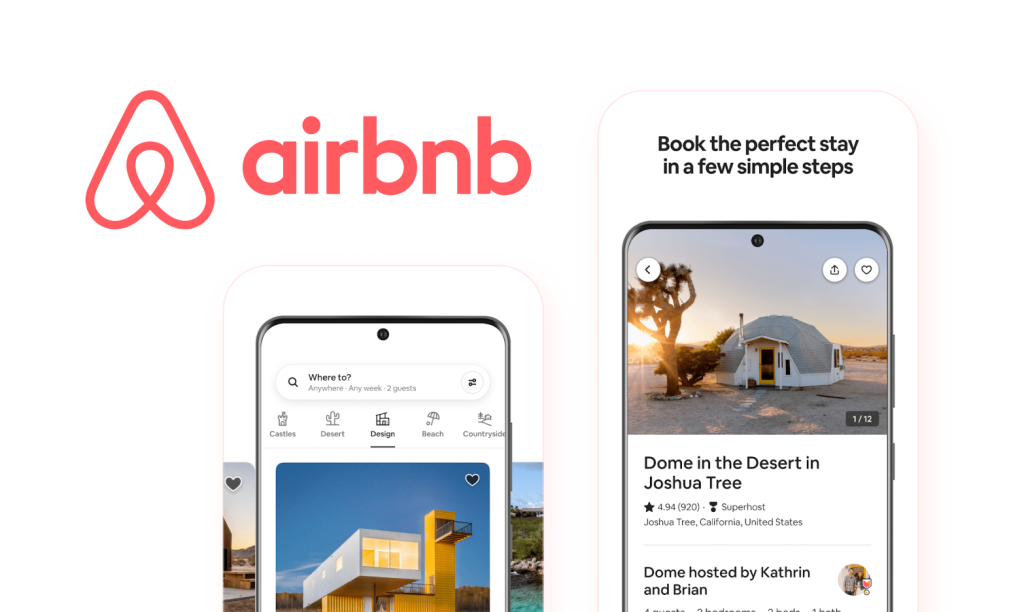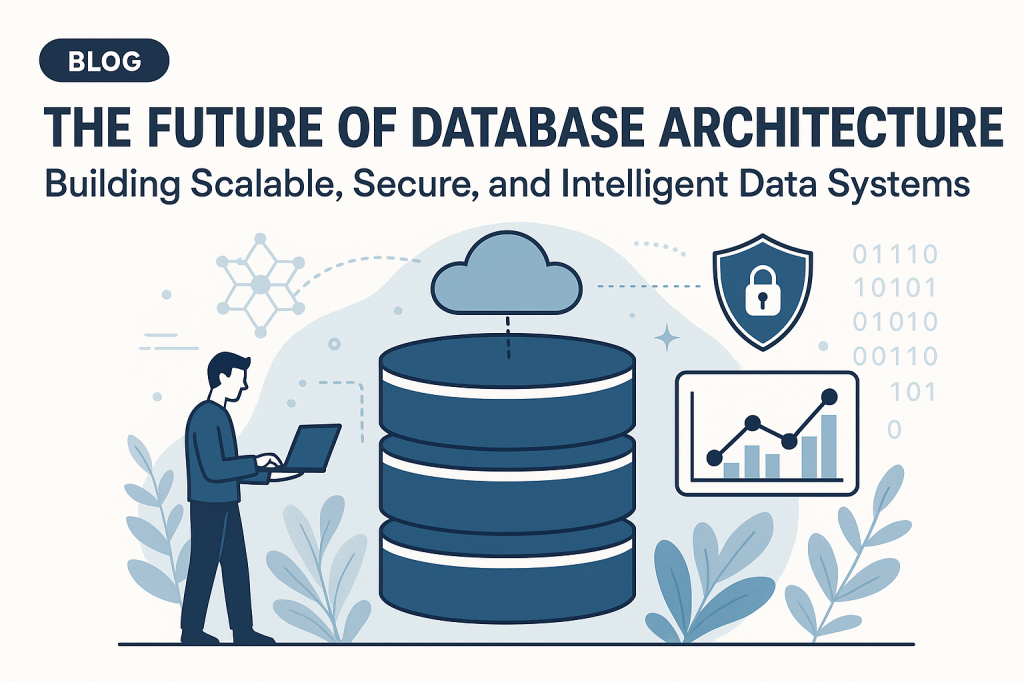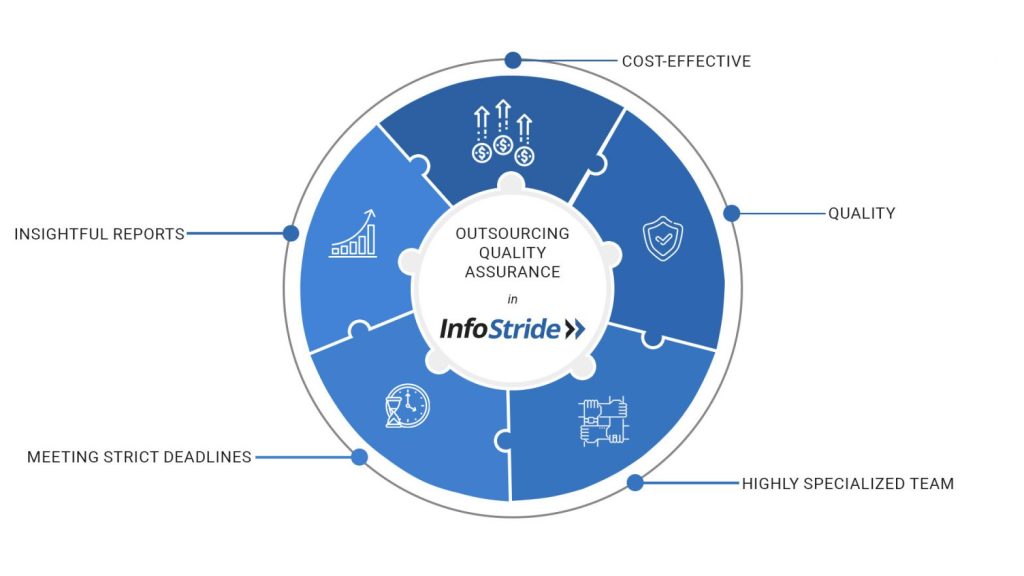Table of Content
Airbnb: A Snapshot of Its Remarkable Journey
Airbnb Business Model: How Airbnb Works
Key Components of Airbnb's Business Model
Market Trends and Future Projections
Steps to Build an App Like Airbnb
Cost to Build an App Like Airbnb
In recent years, the emergence of the sharing economy has revolutionized the way people travel and experience accommodations worldwide. At the forefront of this revolution stands Airbnb, a pioneering platform that has not only transformed the hospitality industry but has also become synonymous with modern travel. This blog post will delve into the intricacies of the Airbnb business model, examining how it has disrupted traditional hospitality paradigms and reshaped the way people find lodging.
The Airbnb business model is not just about booking a place to stay; it represents a fundamental shift in consumer behavior and the way individuals interact with their surroundings. Founded in 2008 by Brian Chesky, Joe Gebbia, and Nathan Blecharczyk, Airbnb started as a simple solution to a common problem: the need for affordable and authentic accommodations while traveling. Since then, it has experienced exponential growth, expanding its reach to over 220 countries and regions, with millions of listings and users worldwide.
The rapid ascent of Airbnb underscores its significance in the hospitality industry, challenging established players and redefining the concept of hospitality. By connecting travelers with local hosts offering unique and personalized accommodations, Airbnb has democratized travel, making it more accessible and enriching for people from all walks of life. Whether it’s a cozy apartment in the heart of a bustling city or a rustic cottage nestled in the countryside, Airbnb offers a diverse range of options to suit every traveler’s preferences and budget.
In this blog post, we will explore the intricacies of the Airbnb business model, dissecting its key components, revenue streams, and value proposition. We will also examine the challenges and controversies that Airbnb has faced along the way, as well as its resilience in adapting to changing market dynamics. Stay with us on this journey as we unravel the secrets behind Airbnb’s phenomenal success and its enduring impact on the hospitality landscape.
Airbnb: A Snapshot of Its Remarkable Journey
History of Airbnb
Airbnb’s journey from a small startup to a global powerhouse is nothing short of remarkable. The concept was born out of a simple yet innovative idea by Brian Chesky and Joe Gebbia in 2007. Struggling to pay rent in San Francisco, they decided to offer air mattresses in their living room to attendees of a design conference who couldn’t find hotel accommodations. This modest beginning inspired the creation of “Air Bed & Breakfast,” which officially launched in August 2008 with the help of their third co-founder, Nathan Blecharczyk.
Over the years, Airbnb has reached several key milestones that have cemented its place in the hospitality industry:
- 2008: Official launch of Airbnb. Initial focus on offering short-term lodging in the founders’ apartment.
- 2010: Expansion beyond air mattresses to include entire homes and a broader range of property types.
- 2011: First international office opens in Hamburg, Germany, marking the beginning of global expansion.
- 2013: Introduction of the “Experiences” feature, allowing hosts to offer guided activities and local experiences to guests.
- 2014: Rebranding to “Airbnb” with a new logo and a mission to create a world where anyone can belong anywhere.
- 2016: Launch of Airbnb Plus, offering a selection of high-quality homes with exceptional reviews and a verification process.
- 2020: Despite the challenges of the COVID-19 pandemic, Airbnb successfully adapts and goes public on the Nasdaq stock exchange, achieving one of the largest IPOs of the year.
What is Airbnb?
At its core, Airbnb is an online marketplace that connects travelers with hosts offering lodging in residential properties. Unlike traditional hotels, Airbnb offers a vast array of unique accommodations ranging from spare rooms and apartments to entire homes, castles, and even treehouses. This diversity of options allows travelers to find a place that fits their personal preferences and budget, providing a more personalized and authentic travel experience.
The platform operates by allowing hosts to list their properties and set their own prices, while guests can search for accommodations, read reviews, and book their stay directly through the Airbnb website or app. This peer-to-peer model empowers individuals to monetize their extra space and provides travelers with a cost-effective and often more immersive alternative to hotels.
Statistics on Airbnb’s Reach and Impact
Since its inception, Airbnb has seen phenomenal growth, reflected in its impressive statistics:
- Listings: As of 2024, Airbnb boasts over 7.7 million active listings in more than 220 countries and regions. This extensive network includes everything from urban apartments and suburban homes to unique stays like yurts, houseboats, and villas.
- Users: The platform has served over 1.5 billion guests since its launch, with a community of over 5 million hosts offering their spaces to travelers around the globe.
- Revenue: In 2023, Airbnb reported annual revenues exceeding $10 billion, underscoring its significant economic impact and its role as a major player in the travel and hospitality sector.
These numbers highlight the scale and influence of Airbnb in the modern hospitality landscape. The platform has not only created new opportunities for individuals to earn income but has also broadened the horizons of what travel can be, offering experiences that go beyond the conventional hotel stay.
Airbnb Business Model: How Airbnb Works
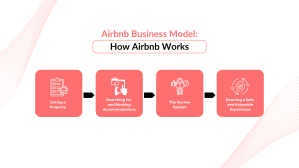
Airbnb’s platform is designed to seamlessly connect hosts offering their properties with guests seeking unique accommodations. Here’s a step-by-step look at how this process unfolds, from listing a property to booking a stay, and the mechanisms that ensure trust and security.
Listing a Property
For hosts, listing a property on Airbnb is a straightforward and flexible process. Here’s how it works:
Creating an Account: Potential hosts start by creating an account on Airbnb. This requires providing basic information and verifying their identity, ensuring a level of security and trust from the outset.
Setting Up the Listing: Hosts can then create a listing for their property. This involves:
- Adding Property Details: Describing the space, its amenities, and any house rules. Hosts can list entire homes, private rooms, or shared spaces.
- Uploading Photos: High-quality images help showcase the property’s appeal and attract potential guests.
- Setting Availability and Pricing: Hosts can choose the dates their property is available and set their own pricing. Airbnb offers tools and tips to help hosts price competitively.
Publishing the Listing: Once all details are filled in, the listing goes live on the platform, making it visible to millions of potential guests.
Searching for and Booking Accommodations
For guests, finding and booking the perfect stay is just as intuitive. Here’s how the process works:
Searching for Accommodations: Guests begin by entering their destination, travel dates, and the number of guests. They can then refine their search using various filters, such as price range, type of property, amenities, and location.
Exploring Listings: Each listing includes a detailed description, photos, pricing, and reviews from previous guests. Guests can also view the host’s profile and see their response rate and reviews.
Booking a Stay: Once a guest finds a suitable property, they can choose to book instantly if the host has enabled instant booking or send a reservation request to the host. The host then has 24 hours to accept or decline the request.
Payment Processing: Airbnb handles all payments securely. Guests pay via the platform using various payment methods, and Airbnb holds the payment until 24 hours after the check-in date to ensure everything is as expected. This adds a layer of security for both parties.
The Review System
A critical component of Airbnb’s success is its robust review system, which fosters trust and transparency between hosts and guests. Here’s how it works:
Leaving Reviews: After a stay is completed, both guests and hosts are encouraged to leave reviews. This two-way review system ensures that both parties are accountable for their behavior and the accuracy of the property description.
Rating and Feedback: Guests rate their experience based on cleanliness, communication, location, check-in, value, and accuracy of the listing. They can also provide written feedback that other potential guests can read. Similarly, hosts rate guests on their cleanliness, communication, and adherence to house rules.
Public and Private Feedback: Reviews are published on the listing and the host’s profile, providing valuable insights for future guests. Airbnb also allows for private feedback that is only visible to the host or guest, which can be used to improve future interactions.
Trust and Safety Measures: To maintain the integrity of the review system, Airbnb employs various measures, including:
- Verified Reviews: Only guests who have booked and stayed at a property can leave a review, ensuring that feedback is genuine and based on real experiences.
- Response Opportunity: Hosts and guests can respond to reviews, allowing them to address any concerns or clarify any misunderstandings.
Ensuring a Safe and Enjoyable Experience
Airbnb has implemented several features and policies to safeguard the interests of both hosts and guests:
Host and Guest Verification: Airbnb verifies the identity of users and allows them to link their profiles to social media accounts for added credibility.
Secure Communication: All communication between hosts and guests is facilitated through Airbnb’s messaging system, which helps prevent fraud and ensures that all discussions are recorded.
Resolution Center: In case of disputes or issues during a stay, Airbnb’s Resolution Center helps mediate and resolve conflicts, offering support and protection through its Host Guarantee and Guest Refund Policy.
By combining these comprehensive features, Airbnb has created a platform that not only simplifies the process of finding and offering accommodations but also builds a community of trust and reliability. This intricate system is at the heart of Airbnb’s business model, making it a preferred choice for millions of travelers and hosts around the globe.
Key Components of Airbnb’s Business Model
Airbnb’s success as a disruptive force in the hospitality industry can be attributed to its innovative business model. This section delves into the core components that drive Airbnb’s operations, including its revenue streams, cost structure, and the unique value it offers to both hosts and guests.
Airbnb Revenue Model
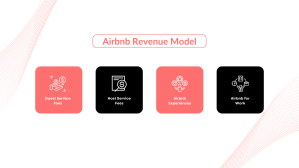
The Airbnb revenue model is primarily driven by the service fees it charges to both hosts and guests for facilitating bookings through its platform. Here’s how Airbnb generates its income:
1. Guest Service Fees:
- Airbnb charges guests a service fee on each booking, typically ranging between 5% and 15% of the booking subtotal (the nightly rate plus cleaning fee, if applicable). This fee helps cover the costs of running Airbnb’s platform and providing 24/7 customer support.
- The exact percentage varies depending on factors like the total cost of the booking and the location, with lower percentages generally applied to higher-cost bookings.
2. Host Service Fees:
- Hosts are also charged a service fee for using the platform, usually set at 3% of the booking subtotal. This fee helps cover the costs associated with processing payments and maintaining the platform.
- In some cases, such as for Airbnb Plus hosts or those using a “super strict” cancellation policy, the host fee may be higher, up to 5%.
3. Airbnb Experiences:
- Beyond accommodation, Airbnb generates revenue through its “Experiences” feature, where hosts offer activities and tours. Similar to accommodation bookings, Airbnb charges a service fee to the hosts of experiences, typically 20% of the price charged to guests.
- This has diversified Airbnb’s revenue stream and expanded its market beyond just lodging.
4. Airbnb for Work:
Airbnb also targets corporate clients through “Airbnb for Work,” offering business travel accommodations. Companies can manage employee travel through this service, and Airbnb earns revenue through the standard booking fees applied to these reservations.
Cost Structure
Running a global platform like Airbnb involves significant operational expenses. Here’s a breakdown of the primary costs associated with maintaining and growing Airbnb’s business:
1. Technology and Development:
- Platform Maintenance and Development: Continuous investment in technology to maintain and enhance the platform’s functionality, including website and app updates, security measures, and infrastructure.
- Data Analytics and AI: Leveraging data to improve search algorithms, pricing strategies, and personalized recommendations for users.
2. Customer Support:
- Providing 24/7 customer support for both hosts and guests involves significant costs. This includes staffing, training, and developing tools to handle a high volume of inquiries and resolve disputes efficiently.
3. Marketing and Sales:
- Advertising and Promotions: Significant spending on global marketing campaigns to attract new users and retain existing ones. This includes digital advertising, social media campaigns, and partnerships.
- Brand Development: Investments in maintaining and enhancing Airbnb’s brand image through various channels and initiatives, ensuring consistent communication and community engagement.
4. Operational Costs:
- Legal and Regulatory Compliance: Navigating the complex legal landscape of different countries and cities, ensuring compliance with local regulations and dealing with any legal disputes or issues.
- Administrative and General Costs: Expenses related to the day-to-day running of the business, such as office spaces, utilities, and employee salaries.
Value Proposition
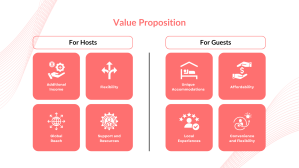
Airbnb’s compelling value proposition is what sets it apart from traditional hospitality providers and has driven its widespread adoption among hosts and guests. Here’s how Airbnb delivers value to its users:
For Hosts:
- Additional Income: Airbnb provides an accessible way for individuals to monetize their unused space, whether it’s a spare room or an entire property. This can be a significant source of additional income for many hosts.
- Flexibility: Hosts have full control over their listing, including setting availability, house rules, and pricing. This flexibility allows them to manage their property as they see fit, accommodating their personal schedule and preferences.
- Global Reach: By listing on Airbnb, hosts gain access to a vast global audience of potential guests, increasing their chances of securing bookings compared to traditional rental methods.
- Support and Resources: Airbnb offers various tools and resources to help hosts succeed, from pricing tips and photography services to community support and education on best practices.
For Guests:
- Unique Accommodations: Airbnb offers a diverse range of lodging options that go beyond typical hotel rooms. Guests can choose from unique properties like treehouses, boats, and historic homes, providing memorable and personalized experiences.
- Affordability: Often, Airbnb accommodations are more cost-effective than hotels, especially for longer stays or group travel, making it an attractive option for budget-conscious travelers.
- Local Experiences: Staying in a residential property allows guests to experience destinations more authentically, often in neighborhoods outside of typical tourist areas. Additionally, the “Experiences” feature enables guests to engage in local activities and tours hosted by residents.
- Convenience and Flexibility: Airbnb’s platform makes it easy to search for, book, and manage accommodations. Guests can find properties that meet their specific needs, such as pet-friendly homes, entire apartments, or places with kitchens for self-catering.
Airbnb’s business model is a finely tuned ecosystem that leverages technology, community engagement, and flexible options to create a unique and valuable experience for both hosts and guests. This blend of financial incentives, user control, and distinctive offerings continues to drive Airbnb’s success and expansion in the global hospitality market.
Market Analysis
The short-term rental industry has experienced tremendous growth over the past decade, driven by platforms like Airbnb that offer flexible, personalized lodging options. In this section, we examine the competitive landscape, including key players such as Vrbo and Booking.com, and discuss prevailing market trends and future projections for the industry.
Competitive Landscape
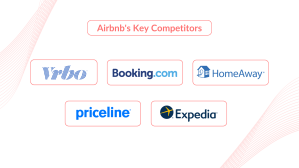
Airbnb operates in a highly competitive market, facing significant challenges from other established players and new entrants. Here’s a look at some of the major competitors and how they stack up:
1. Vrbo (Vacation Rentals by Owner):
- Overview: Founded in 1995 and acquired by the Expedia Group in 2015, Vrbo is one of the oldest and most prominent players in the short-term rental market. Vrbo primarily caters to family and group travelers seeking vacation homes.
- Strengths: Vrbo focuses on entire home rentals, providing a robust platform for property owners to list their vacation homes. It offers a more traditional vacation rental experience with a focus on quality listings and longer stays.
- Challenges: Unlike Airbnb, Vrbo does not cater to shared spaces or rooms, potentially limiting its audience. Additionally, Vrbo’s presence is more concentrated in North America, whereas Airbnb has a broader international reach.
2. Booking.com:
- Overview: Booking.com, part of Booking Holdings Inc., is a giant in the online travel booking industry, offering a wide range of accommodations, including hotels, hostels, and short-term rentals.
- Strengths: With its extensive global network, Booking.com provides a comprehensive platform that appeals to a broad range of travelers. It has a well-established brand and a robust customer service infrastructure.
- Challenges: Although Booking.com has a vast array of listings, its platform is traditionally seen as hotel-centric. It is currently expanding its short-term rental offerings to compete with Airbnb but may need to overcome the perception that it is primarily a hotel booking site.
3. HomeAway:
- Overview: Also part of the Expedia Group, HomeAway focuses on vacation rentals and offers a similar service to Vrbo. It has a large inventory of vacation homes and caters to families and groups looking for entire property rentals.
- Strengths: HomeAway has a strong presence in Europe and North America and provides a wide selection of vacation rentals. It benefits from the resources and reach of the Expedia Group.
- Challenges: Like Vrbo, HomeAway primarily offers entire homes, potentially missing out on travelers looking for shared or unique accommodations. The brand identity is also closely tied to traditional vacation rentals, which may limit its appeal to more adventurous or budget-conscious travelers.
4. Expedia and Priceline:
- Overview: These giants in the travel industry have also expanded their offerings to include short-term rentals. While traditionally focused on hotel bookings and travel packages, they are now competing in the home-sharing space.
- Strengths: Both platforms have a vast customer base, extensive marketing capabilities, and a strong reputation in the travel industry. They offer comprehensive travel solutions, including flights, car rentals, and activities.
- Challenges: Their focus on traditional travel bookings and packages may dilute their short-term rental offerings. Competing in the short-term rental market requires them to adapt their business models to accommodate more flexible and diverse accommodation types.
Market Trends and Future Projections

The short-term rental industry is evolving rapidly, influenced by changes in consumer behavior, technological advancements, and economic factors. Here’s a look at some of the key trends shaping the future of the market:
1. Growth in Remote Work and Extended Stays:
- Trend: The rise of remote work, accelerated by the COVID-19 pandemic, has led to an increase in demand for long-term stays and work-friendly accommodations. Travelers are now seeking extended stays that combine work and leisure, often in destinations outside traditional business hubs.
- Projection: This trend is likely to continue as companies adopt more flexible work policies. Platforms that cater to digital nomads and long-term renters will see growing opportunities.
Focus on Health and Safety:
- Trend: The pandemic has heightened awareness of health and safety standards among travelers. Short-term rental platforms have implemented enhanced cleaning protocols and safety measures to address these concerns.
- Projection: Maintaining high health and safety standards will remain critical for attracting and retaining customers. Platforms that can reassure travelers with rigorous cleaning practices and transparent communication will have a competitive edge.
Sustainability and Local Experiences:
- Trend: There is a growing interest in sustainable travel and authentic local experiences. Travelers are increasingly seeking accommodations that align with eco-friendly practices and offer opportunities to engage with local cultures and communities.
- Projection: Platforms that emphasize sustainability and offer curated local experiences will appeal to this conscious traveler segment. Airbnb’s focus on unique stays and its “Experiences” feature position it well to capitalize on this trend.
Technological Advancements and Personalization:
- Trend: Technology continues to play a significant role in enhancing the guest experience and streamlining operations. AI-driven personalization, virtual tours, and seamless booking processes are becoming standard expectations.
- Projection: Investing in technology that enhances user experience, such as AI for personalized recommendations and virtual reality for property previews, will be crucial. Platforms that can leverage data to offer tailored experiences will attract and retain more users.
Regulatory Challenges and Compliance:
- Trend: As the short-term rental market grows, cities and countries are implementing stricter regulations to address issues like housing shortages, noise complaints, and tax compliance. Navigating these regulations is becoming increasingly complex for platforms and hosts.
- Projection: Adapting to local regulations while maintaining a scalable business model will be essential for long-term success. Platforms that can balance compliance with the flexibility needs of hosts and guests will thrive in the evolving regulatory landscape.
The short-term rental industry is poised for continued growth and transformation. Airbnb, with its innovative business model and focus on unique, localized experiences, is well-positioned to navigate the competitive landscape and capitalize on emerging trends. However, it faces ongoing challenges from both established competitors and regulatory environments. As the market evolves, the ability to adapt and innovate will be key to maintaining its leadership position.
Impact of COVID-19
The COVID-19 pandemic has had a profound impact on the global travel and hospitality industry, with Airbnb being no exception. As travel came to a near standstill in early 2020, Airbnb faced unprecedented challenges, from a significant drop in bookings to a shift in consumer priorities. This section examines how the pandemic has affected Airbnb’s business and explores the strategic pivots the company made in response to these changes.
Immediate Impact of the Pandemic
1. Downturn in Travel:
- Global Lockdowns: In the wake of COVID-19, countries worldwide imposed strict travel restrictions and lockdown measures. This resulted in a dramatic decrease in international and domestic travel, severely affecting Airbnb’s core business.
- Cancellations and Refunds: With the onset of the pandemic, Airbnb experienced a surge in booking cancellations. The company had to process millions of refunds, which not only strained its financial resources but also led to tensions with hosts relying on income from bookings.
- Revenue Decline: In the second quarter of 2020, Airbnb’s revenue plummeted by nearly 67% compared to the previous year, reflecting the severe impact of reduced travel demand on its business.
2. Changes in Consumer Behavior:
- Preference for Remote and Isolated Locations: As people sought to avoid crowded places, there was a notable shift in demand towards more remote, rural, or isolated accommodations. Properties in less densely populated areas saw increased bookings compared to urban settings.
- Increase in Domestic Travel: With international travel restrictions in place, domestic travel became more popular. Guests looked for nearby getaways or staycations, leading to a resurgence in bookings within their own countries or regions.
- Focus on Health and Safety: Concerns over health and safety became paramount. Travelers prioritized accommodations that adhered to strict cleanliness protocols and offered more control over their environment compared to hotels.
Strategic Pivots by Airbnb
In response to the challenges posed by the pandemic, Airbnb implemented several strategic adjustments to adapt to the new market realities and cater to evolving consumer needs.
1. Promoting Longer-Term Stays:
- Shift to Remote Work and Living: Recognizing the rise in remote work, Airbnb started to promote longer-term stays (over 28 days) as a viable option for people looking to work from different locations. The platform introduced features to facilitate long-term rentals, such as discounts for extended stays and flexible cancellation policies.
- Focus on Digital Nomads: Airbnb tailored its offerings to appeal to digital nomads—those seeking to combine work and travel. This included highlighting properties with strong Wi-Fi, dedicated workspaces, and amenities conducive to a work-from-anywhere lifestyle.
2. Emphasizing Cleanliness and Safety Protocols:
- Enhanced Cleaning Standards: To address safety concerns, Airbnb launched the “Enhanced Clean” program, a set of rigorous cleaning standards developed in consultation with health experts. Hosts who commit to these standards receive a badge on their listings, helping reassure potential guests.
- Flexible Booking Options: Understanding the uncertainty faced by travelers, Airbnb introduced more flexible booking policies, allowing guests to cancel or modify their bookings with greater ease. This flexibility helped restore traveler confidence and encouraged bookings despite the unpredictable nature of the pandemic.
3. Expanding into New Market Segments:
- Airbnb Experiences: With traditional travel experiences curtailed, Airbnb expanded its “Experiences” offering by introducing online experiences. This allowed hosts to share their skills and hobbies with a global audience virtually, from cooking classes to virtual tours, maintaining engagement and creating new revenue streams.
- Support for Hosts: To support its community of hosts during the downturn, Airbnb launched initiatives like the Superhost Relief Fund, providing financial assistance to those most affected. The platform also offered resources and guidance on adapting to new safety standards and optimizing listings for emerging travel trends.
4. Operational Adjustments and Cost Management:
- Streamlining Operations: Faced with significant revenue losses, Airbnb undertook cost-cutting measures to sustain its business. This included laying off approximately 25% of its workforce and streamlining operations to focus on its core business.
- IPO and Financial Resilience: Despite the challenges, Airbnb successfully went public in December 2020. The IPO was a major milestone, raising significant capital and underscoring investor confidence in Airbnb’s long-term potential and resilience.
Long-Term Implications and Resilience
The pandemic forced Airbnb to rethink and adapt its business model, leading to several long-term implications:
- Greater Flexibility in Travel: The increased focus on flexibility—both in terms of booking policies and accommodation types—has positioned Airbnb to better cater to the evolving needs of travelers in a post-pandemic world.
- Enhanced Trust and Safety: By emphasizing cleanliness and safety, Airbnb has strengthened its commitment to guest and host well-being, likely enhancing trust and loyalty within its community.
- Diversification of Offerings: The expansion into longer-term stays and online experiences has diversified Airbnb’s revenue streams and reduced its dependence on traditional short-term bookings.
Steps to Build an App Like Airbnb
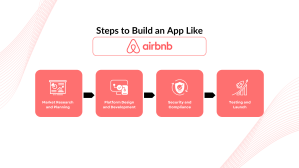
Creating an app like Airbnb requires meticulous planning, robust technology, and a deep understanding of the marketplace you aim to serve. Here’s a step-by-step guide to building your own short-term rental platform:
1. Market Research and Planning
Understand the Market:
- Identify Your Niche: Determine the specific segment of the market you want to target. Will you focus on luxury rentals, budget stays, rural getaways, or a different niche? Analyzing market gaps and customer needs is crucial.
- Competitive Analysis: Study existing competitors like Airbnb, Vrbo, and Booking.com. Identify their strengths and weaknesses to find opportunities for differentiation.
Define Your Unique Selling Proposition (USP):
- Special Features: Consider what unique features or services your platform will offer that sets it apart from competitors. This could include tailored customer experiences, unique property listings, or enhanced security features.
- Target Audience: Clearly define your target audience. Understanding their preferences and pain points will guide your platform’s design and functionality.
Business Model and Monetization:
- Revenue Streams: Decide how your platform will make money. Common models include service fees from hosts and guests, subscription plans for premium listings, and partnerships with local services.
- Pricing Strategy: Develop a competitive pricing strategy for your platform’s services. Consider whether you’ll charge hosts, guests, or both, and how much these fees will be.
2. Platform Design and Development
Choose the Right Technology Stack:
- Front-End: Focus on creating a user-friendly and responsive interface. Technologies like React.js or Angular.js are popular choices for building dynamic and interactive front-ends.
- Back-End: Ensure a robust and scalable back-end to handle user data, transactions, and listings. Frameworks like Node.js, Django, or Ruby on Rails are well-suited for this.
- Database: Use reliable database solutions like PostgreSQL or MongoDB to manage user and listing data efficiently.
Key Features to Include:
- User Registration and Profiles: Allow users to create and manage profiles. Include identity verification processes for added security.
- Property Listings: Enable hosts to list their properties with detailed descriptions, photos, availability calendars, and pricing options.
- Search and Filtering: Provide guests with advanced search and filtering options to find the perfect accommodation based on location, price, amenities, and more.
- Booking and Payments: Integrate a secure booking system that supports various payment methods and currencies. Ensure smooth payment processing and refund mechanisms.
- Reviews and Ratings: Implement a review system to build trust and transparency between hosts and guests. Allow both parties to rate and review each other.
- Communication Tools: Facilitate secure messaging between hosts and guests through an integrated chat system.
Mobile App Development:
- Cross-Platform Compatibility: To reach a broader audience, consider developing mobile apps for both iOS and Android platforms. Utilizing mobile app development services can simplify this process and ensure high-quality results. Tools like Flutter or React Native are popular choices that streamline cross-platform app development, allowing you to maintain a consistent user experience across different devices.
3. Security and Compliance
Data Security and Privacy:
- Encryption and Secure Transactions: Ensure all data transactions are encrypted to protect user information. Implement SSL certificates and secure payment gateways.
- Privacy Policies: Develop comprehensive privacy policies and comply with data protection regulations like GDPR and CCPA.
User Verification and Fraud Prevention:
- Identity Verification: Use third-party services to verify user identities, reducing the risk of fraudulent activities on your platform.
- Behavior Monitoring: Implement algorithms to detect and prevent suspicious activities, such as fake listings or fraudulent bookings.
Compliance with Local Regulations:
- Rental Laws and Taxes: Ensure your platform complies with local short-term rental laws and tax regulations. This might involve collecting and remitting taxes on behalf of hosts.
- Accessibility and Non-Discrimination: Adhere to regulations regarding accessibility and anti-discrimination to create an inclusive platform for all users.
4. Testing and Launch
Beta Testing:
- User Feedback: Launch a beta version of your platform to gather feedback from early users. This helps identify and resolve issues before the full launch.
- Performance Testing: Ensure your platform performs well under various conditions and traffic loads. This includes testing for speed, scalability, and security.
Marketing and Promotion:
- Digital Marketing Strategy: Develop a comprehensive marketing plan that includes SEO, social media, content marketing, and paid advertising to attract both hosts and guests.
- Partnerships and Influencers: Build partnerships with travel bloggers, influencers, and local businesses to promote your platform and reach a wider audience.
Official Launch:
- Launch Event: Plan a launch event or campaign to generate buzz and attract initial users. Offer promotional discounts or incentives to encourage sign-ups and bookings.
- Customer Support: Establish a reliable customer support system to assist users with any issues or questions they might have.
Cost to Build an App Like Airbnb
To build an app like Airbnb one needs significant investment, influenced by various factors such as the complexity of features, technology stack, and development team location. Here’s a breakdown of potential costs:
1. Development Costs:
- Front-End Development: Depending on the complexity and design, front-end development can cost between $20,000 to $100,000. This includes building user interfaces, responsive design, and ensuring cross-browser compatibility.
- Back-End Development: Creating a robust back-end infrastructure typically ranges from $30,000 to $150,000. This covers server management, database integration, API development, and payment processing systems.
- Mobile App Development: Developing native or cross-platform mobile apps could cost between $40,000 to $200,000, depending on features and functionalities required for iOS and Android platforms.
2. Design and User Experience:
- UI/UX Design: A well-designed user interface and seamless user experience are crucial for attracting and retaining users. Expect costs between $10,000 to $50,000 for comprehensive design services.
3. Security and Compliance:
- Security Measures: Implementing robust security measures, including encryption, user verification, and fraud prevention, can cost around $10,000 to $50,000.
- Compliance and Legal Fees: Ensuring compliance with local regulations and creating legal policies may incur costs ranging from $5,000 to $20,000.
4. Testing and Quality Assurance:
- Testing Services: Thorough testing of the platform, including performance, security, and usability testing, can cost between $10,000 to $30,000.
5. Marketing and Launch:
- Marketing Campaigns: Initial marketing efforts to promote the platform might require a budget of $20,000 to $100,000, depending on the scale and channels used.
- Launch Costs: Planning and executing a launch event or promotional campaign can cost an additional $10,000 to $30,000.
6. Ongoing Maintenance and Updates:
- Maintenance: Regular maintenance and updates are necessary to keep the platform running smoothly. Annual costs can range from $30,000 to $100,000 or more, depending on the complexity of the platform.
Estimated Total Costs:
- Basic Platform: $150,000 – $300,000
- Advanced Platform: $300,000 – $1,000,000+
These estimates provide a general guideline. Actual costs can vary based on the specific requirements, location, and the development team’s expertise.
InfoStride: Your Partner to Build an App Like Airbnb
When embarking on the journey to build an app like Airbnb, having a reliable technology partner can make all the difference. InfoStride is a leading IT services provider that specializes in developing innovative, scalable platforms. Here’s how InfoStride can assist you:
1. Expertise in Platform Development:
- Comprehensive Development Services: InfoStride offers end-to-end mobile and website development services, from initial concept and design to deployment and maintenance. We specialize in MVP development services to help you quickly launch a minimum viable product, allowing you to validate your business idea efficiently. Our team is proficient in building robust front-end and back-end solutions tailored to your business needs.
- Experience with Similar Projects: With a portfolio that includes building complex, high-traffic platforms, InfoStride brings valuable experience and insights to your project.
2. Custom Solutions:
- Tailored to Your Vision: InfoStride works closely with clients to understand their unique requirements and goals, offering custom software development services that deliver tailored solutions aligned with your vision and market niche.
- Scalable and Flexible: We develop scalable platforms that can grow with your business, ensuring long-term sustainability and flexibility to adapt to market changes.
3. Advanced Technology and Security:
- State-of-the-Art Technology: Leveraging the latest technologies and development practices, InfoStride ensures your platform is built on a solid and modern tech stack.
- Security Focused: InfoStride prioritizes security, implementing rigorous measures to protect user data and prevent fraud, ensuring compliance with industry standards.
4. Agile Development Process:
- Efficient and Responsive: Our agile development process allows for iterative progress, rapid prototyping, and continuous feedback, ensuring the project stays on track and aligns with your objectives.
- Transparent Communication: InfoStride maintains clear and regular communication throughout the development process, keeping you informed and involved at every stage.
5. Post-Launch Support and Maintenance:
- Ongoing Support: After the platform is launched, InfoStride provides comprehensive support and maintenance services to ensure smooth operation and address any emerging issues.
- Continuous Improvement: We assist with regular updates and feature enhancements to keep your platform competitive and aligned with evolving market trends.
Interested in Building an App Like Airbnb?
InfoStride is here to help you transform your idea into a successful, thriving platform. Whether you’re looking to enter the short-term rental market or create a unique marketplace, InfoStride’s expertise and commitment to excellence make them the ideal partner for your journey.
Frequently Asked Questions
1. What is the Airbnb business model, and how can I replicate it for my app?
The Airbnb business model revolves around connecting hosts offering accommodations with travelers seeking unique lodging options. It generates revenue by charging service fees to both hosts and guests. To replicate this model for your app, you’ll need to develop a platform that facilitates user registration, property listings, booking management, and secure payment processing. For detailed guidance on replicating the Airbnb business model, consult with experts in Airbnb-like app development.
2. What should be included in an Airbnb business plan to ensure success?
An effective Airbnb business plan should include:
- Market Research: Analysis of the competitive landscape and target audience.
- Business Model: Detailed description of your revenue streams, such as service fees, and the value proposition for users.
- Development Plan: Outline the steps to build an app like Airbnb, including technology stack and key features.
- Marketing Strategy: Tactics for attracting hosts and guests, including digital marketing and partnerships.
- Financial Projections: Estimates of development costs, potential earnings, and break-even points.
A comprehensive plan will help in defining your objectives and mapping out the journey to launch a successful platform.
3. How much does it cost to build an app like Airbnb?
The cost to build an app like Airbnb varies based on several factors, including:
- Features and Complexity: Basic platforms might cost around $150,000, while more advanced ones can exceed $500,000.
- Technology Stack: Costs can differ depending on whether you use native app development or cross-platform tools like Flutter.
- Development Team: Hiring experienced developers, especially for custom software development services, can impact costs.
- Ongoing Maintenance: Regular updates and maintenance are essential and should be factored into the budget.
Consulting with a development partner can provide a more accurate estimate tailored to your specific needs.
4. What are the essential features for apps like Airbnb?
For apps like Airbnb to be successful, they should include:
- User Profiles and Authentication: Secure registration and verification processes.
- Property Listings: Comprehensive listings with photos, descriptions, availability, and pricing.
- Advanced Search and Filters: Tools for users to find accommodations based on location, price, and amenities.
- Booking and Payment Systems: Integrated booking and payment processes that support various methods and currencies.
- Review and Rating System: Allowing users to rate their experience fosters trust and transparency.
These core features are crucial in delivering a seamless user experience and replicating the functionality of Airbnb.
5. How do I get started with Airbnb like app development?
To get started with Airbnb like app development:
- Research and Plan: Begin with a solid understanding of the Airbnb business model and develop a comprehensive business plan.
- Define Your Niche: Decide what will set your platform apart, whether it’s a specific type of accommodation or a unique feature.
- Choose a Development Partner: Collaborate with experts in custom software development services to bring your vision to life. Look for partners with experience in creating apps like Airbnb.
- Develop and Test: Focus on building a minimum viable product (MVP) to test the market and gather feedback. Ensure thorough testing to refine the platform before launch.
- Launch and Promote: Implement a strategic marketing plan to attract initial users and hosts. Monitor performance and make iterative improvements based on user feedback.
Starting with a clear plan and the right development team can streamline the process and set the foundation for a successful platform.
